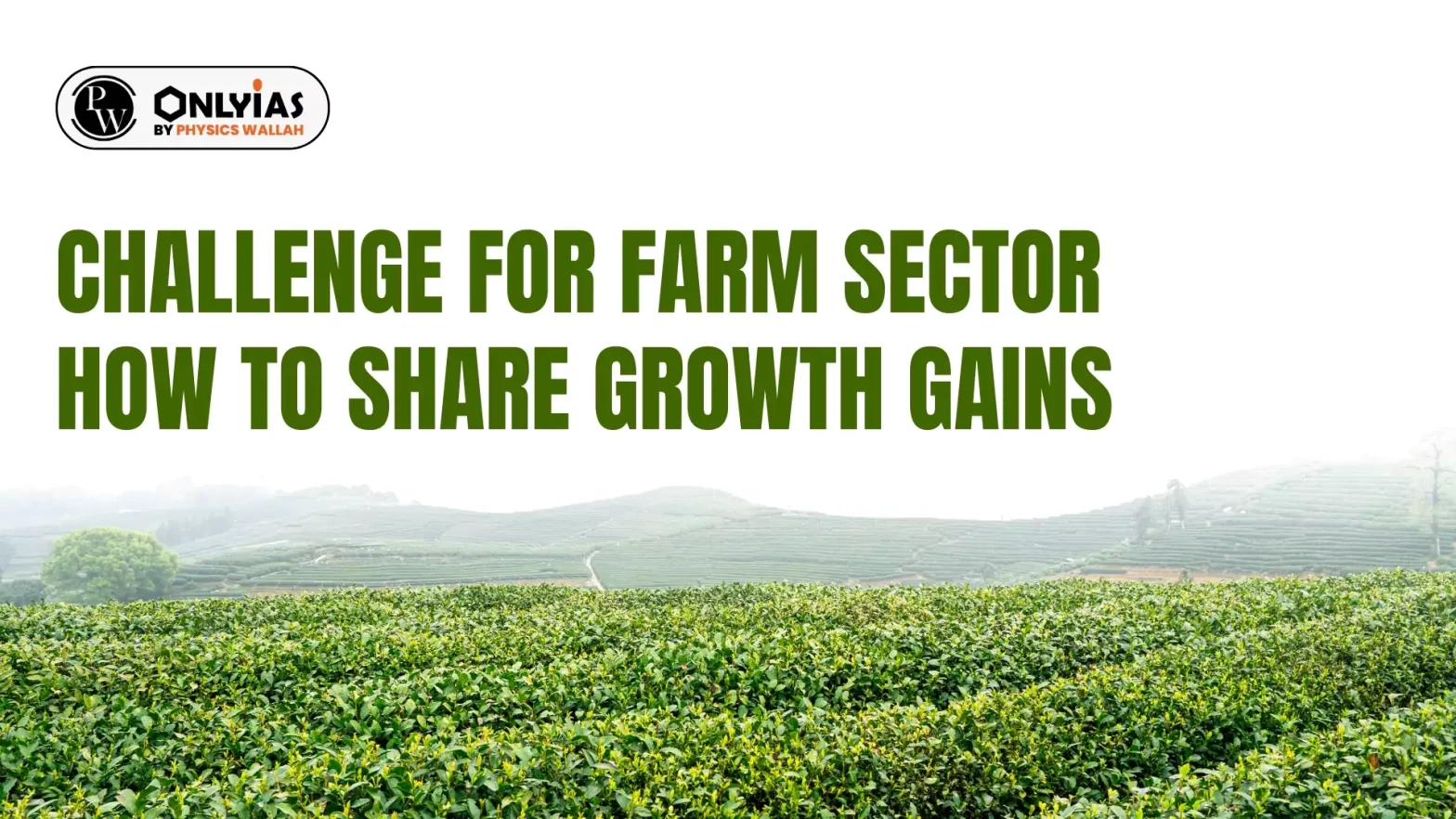As India traverses the road to Amrit Kaal, the agriculture sector’s journey will be difficult, and filled with challenges.
| Relevancy for Prelims: Agriculture in 7th Schedule of Indian Constitution, Agricultural Subsidies, World Trade Organisation’s Dispute-Settlement Mechanism, Sovereign Bankruptcy Procedure, etc.
Relevancy for Mains: Major Challenges Faced by the Farm Sector in India, Solutions for Major Challenges for Farm Sector, etc. |
Major Challenges for Farm Sector
- Climate Change: The climate is changing irreversibly for the worse. We are already witnessing the beginning of erratic climatic events impacting crop production and livelihoods.
- WTO’s Iniquitousness: The World Trade Organisation (WTO) will not change and we will have to live with its wickedness.
- For many years, the US has deliberately crippled the dispute-settlement mechanism.
- When it does become operational, Indian politicians are not likely to know how to wriggle out of its rulings domestically.
- Fragmented Landholdings: The large number of small land holdings (85 per cent of total arable land) fundamentally limits the scope for primary producers to eke out a life of dignity from their profession.
- Unsustainable Farming Practices: The global priority to ensure low food prices for consumers is easiest achieved by artificially driving down farm-gate prices. This makes farming environmentally unsustainable and economically unremunerative.
- Depleting Aquifers: Due to the insatiable demand for water for agriculture is reaching a threshold point where it won’t be economically viable to extract water for irrigation in food basket regions.
- Drinking water is already becoming a sought-after monetised commodity in large swathes of the country.
Enroll now for UPSC Online Course
Way Forward
While these greatly limit our ability to pursue our chosen path, other things can change, provided there is will. It is not going to be easy, but it is also not impossible – that we are not defined by our circumstances, but only shaped by them. Several areas require action.
- Agricultural Research: Investments in agricultural research and extension services have stayed below the level of inflation. In other words, funding has actually dropped, even when every rupee invested in agricultural research yields economic returns upwards of 10 times over other investments.
- Agriculture Markets: They are inherently unfair. We haven’t yet figured out how to address its inevitable unintended consequences. But, agriculture is a state subject, where the states do not work in tandem with national objectives, but use meagre resources for populist dole-outs rather than investing in the future.
- Lack of Viability: Free or unrealistically low prices at which cereals are distributed through the public distribution system continue to drive down farm-gate prices such that primary production remains an unenviable and unviable profession.
- Input subsidies like the skewed fertiliser subsidy leads to indiscriminate use of fertilisers, impacting the health of the people and the planet.
- High Public Debt: Public debt, both at central and state government levels, leaves less financial flexibility to plan for the long term and does not allow for endless further subsidies.
- Many states are in line to be technically categorised as bankrupt. A sovereign bankruptcy procedure for states is missing.
Check Out UPSC CSE Books From PW Store
Conclusion
Addressing climate change, WTO challenges, land fragmentation, unsustainable practices, and water depletion is crucial for sustainable agriculture, requiring research, market reforms, and fiscal prudence.
![]() 5 Jun 2024
5 Jun 2024
